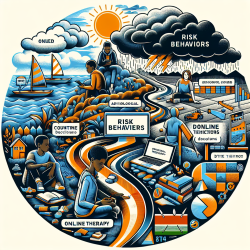The COVID-19 pandemic has accelerated the adoption of telepractice in many health professions, including speech-language pathology and neuropsychology. One significant advancement is the videoconference version of the Montreal Cognitive Assessment (MoCA). A recent study titled Videoconference version of the Montreal Cognitive Assessment: normative data for Quebec-French people aged 50 years and older provides valuable insights that can enhance remote cognitive assessments.
This research aimed to develop normative data for the MoCA administered via videoconference, focusing on Quebec-French adults aged 50 years and older. The study included 230 participants and used regression analyses to explore the impact of age, education, and cardiovascular disease on MoCA scores. The results showed that older age and lower education levels were associated with lower MoCA scores, while sex and cardiovascular disease were not significant predictors.
Here are some key takeaways for practitioners:
- Use of Normative Data: The study provides a regression equation to calculate Z scores, enabling clinicians to interpret MoCA scores accurately in a remote setting.
- Importance of Education and Age: The findings emphasize the need to consider age and education when interpreting MoCA scores, as these factors significantly influence cognitive performance.
- Videoconference as a Valid Modality: The study reinforces that videoconference administration of the MoCA is a valid alternative to in-person assessments, making it easier to reach patients in remote areas.
For practitioners, these findings are crucial for making data-driven decisions in remote cognitive assessments. The use of videoconference MoCA can extend access to cognitive screenings, particularly for individuals in remote or underserved areas. However, it's essential to use the provided normative data to ensure accurate interpretation of the results.
In conclusion, the study offers a robust framework for remote cognitive assessments, paving the way for more inclusive and accessible healthcare services. Future research should focus on validating these norms in clinical populations, such as individuals with mild cognitive impairment or dementia, to further enhance the reliability of remote assessments.
To read the original research paper, please follow this link: Videoconference version of the Montreal Cognitive Assessment: normative data for Quebec-French people aged 50 years and older.










